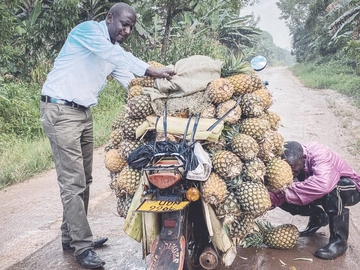Are certified products making agriculture more sustainable and can they lift farmers out of poverty?
August 12, 2022.
Sustainability certificates such as, Fair Trade, Rainforest Alliance or the Forest Stewardship Council have become popular among consumers who want to make a contribution to a fairer and more sustainable world. Certification schemes therefore remain a popular private governance approach to promote sustainable production of food and other products.
In short, certification schemes imply that famers can get a premium price for their product when they, in return, follow specific guidelines aiming to improve the sustainability of the production process. It has been argued by multiple organizations that this market-based approach can contribute to biodiversity conservation, be beneficial to whole communities and lift poor farmers out of poverty. But can certification really have this impact and thereby live up to its promises and consumers’ expectations?
A recent study published by scientists from the University of Münster and the University of Bonn, Germany, in the scientific journal Ecological Economics (https://doi.org/10.1016/j.ecolecon.2022.107546) shows that this is not always the case.
The research team analyzed more than 170 published studies on the effects of certification schemes implemented around the world. The researchers explored how the scientific literature evaluates the effectiveness of certification in bio-based global value chains. To this end they grouped them as studies coming to favorable, mixed, or skeptical conclusions about certification. They also analyzed the influence of factors such as the type of certificate, the analyzed sustainability dimension, the study location as well as the data collection method.
“Overall we found a very mixed picture similarly distributed across economic, social, and environmental areas of sustainability, global regions as well as across different types of certificates” says Thomas Dietz, Professor of Politics and Law with a focus on Sustainable Development at the University of Münster and lead author of the study. “But we could also see that more skeptical valuations of certification have increased over time”. The authors state that the overall results point towards a limited success of certification in governing bio-based primary production, dominated by skeptical statements in the literature analyzed when it came to actual sustainability benefits.
“Interestingly, we found that certification schemes were able to improve certain aspects such as income of farmers, but not to lift farmers out of poverty completely. We think that this might relate, for example, to the limited possibilities of many farmers to access certification schemes because of high investment costs” says Lisa Biber-Freudenberger, Junior-Professor for Sustainable Development at the Center for Development Research at the University of Bonn and co-author of the study.
The authors conclude that certification has a positive effect, which, however, does not unfold its actual potential because of other, counteracting effects. This was particularly evident in the economic and the social sustainability dimensions. The authors do not argue against certification as an option to improve sustainability of the primary sector but conclude that there is a need for governance measures that consider the dynamics of and between complex social, economic and ecological systems.
This study was published in Ecological Economics Volume 201, November 2022, 107546, see https://doi.org/10.1016/j.ecolecon.2022.107546. For more information, contact Thomas Dietz (thomas.dietz(at)uni-muenster.de) and Lisa Biber-Freudenberger (lfreuden(at)uni-bonn.de).



